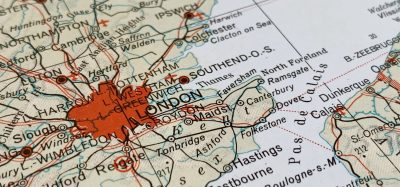Professional services for 21st century railways
Posted: 29 December 2006 | | No comments yet
All large corporate organisations, such as railways, have the need for professional services. Lawyers, accountants, architects, engineers – all these and more are likely to be needed at some time or another, especially if large projects are being planned.
All large corporate organisations, such as railways, have the need for professional services. Lawyers, accountants, architects, engineers – all these and more are likely to be needed at some time or another, especially if large projects are being planned.
All large corporate organisations, such as railways, have the need for professional services. Lawyers, accountants, architects, engineers – all these and more are likely to be needed at some time or another, especially if large projects are being planned. Many professional services will be available in-house – and the larger the organisation, the more likely this is to be the case. Thus many of Europe’s big state railways have these skills in-house, and indeed many have consultancies – such as France’s SNCF International and Germany’s DE Consult – which sell professional services to outside bodies.
Smaller companies need to buy such services in, and the trend in Europe over the past decade has been towards the break-up of the large state railway monopolies into smaller entities, in a bid to encourage competition. Nowhere is this process more advanced than in the UK, where British Rail was broken up into more than 100 companies in the privatisation process of the mid 1990s.
Indeed a few of these 100-odd companies were dedicated to selling professional services. British Rail’s traction and rolling stock expertise, for example, was split into three units for sale. One of these was bought by an existing consultancy – W. S. Atkins. But the other two – the Engineering Link (freight and regional rolling stock expertise) and Interfleet Technology (inter-city stock) – went to management buy-outs. While the Engineering Link was later bought by AEA Technology (now Delta Rail), Interfleet persists as an independent company.
One of the great advantages of buying in outside expertise is that it can result in the introduction of new ideas and best practice from elsewhere. For example Metronet, one of the companies charged with modernising the infrastructure of the London Underground under the Public-Private Partnership, has asked Hong Kong’s Mass Transit Railway – widely respected as one of the most well-run metros in the world – for assistance in building up a preventive maintenance programme. The idea is that if elements of the infrastructure are regularly maintained they are less likely to go wrong – so Metronet hopes to move from a ‘fire engine’ service where engineers are battling to fix broken equipment to a more orderly regime in which the equipment is replaced or repaired before it goes wrong, with all the disruption of passenger services that implies.
With this approach, which railways all over the world are seeking to apply, knowledge is a key requirement. Railway managers need to know the condition of the assets under their control if they are to be prevented from failing. Thus many rail administrations are seeking to introduce ‘Dr Yellow’ inspection trains of the type pioneered on the high-speed Shinkansen in Japan: self-propelled units which travel the lines recording data on a variety of subjects such as the alignment of the track and the sag of the overhead lines. Properly equipped with knowledge of the state of the track, engineers can devise work programmes that will keep the infrastructure in tip-top condition.
Eurailscout of The Netherlands is one company that helps railways in this quest, with a fleet of inspection trains that are used over much of Europe. The company has recently brought the expertise it has acquired in Continental Europe to the UK, going into joint venture with Carillion to operate a Plasser & Theurer inspection train purpose-built to the UK’s restrictive loading gauge. This travels the third rail electrified lines in the south of the country, building up a picture of the state of the infrastructure for use by Network Rail’s engineers.
Tunnels
Major projects require the services of professional engineers – tunnels being a classic example. Tunnels do not come much larger than the Channel Tunnel linking the UK and Europe – the second-longest underwater tunnel in the world, after the Seikan tunnel in Japan. Built by private enterprise, the Channel Tunnel project required the services of many professional services companies. For example, the underwriting banking syndicate retained Louis Berger, the American engineering consultancy, as Technical Adviser. The group spent eight years performing design, cost and schedule monitoring and risk analysis for the mega-project that helped to reshape the map of Europe.
Another tunnel project is taking shape now in the Swedish capital, Stockholm. Aimed at alleviating the chronic congestion on the approach tracks to the city centre, the City Line will provide a dedicated section of track in a 6km tunnel through the city for commuter trains and add two new central underground rail stations. Rail capacity through the city centre will be doubled, from the current 24 trains per hour in each direction to 48.
A project on this scale requires considerable expertise and one of the companies involved is WSP Sverige, which has been contracted to project manage the track, water and waste water installations for the entire length of the new tunnel, as well as undertaking rock investigation, geotechnical and construction work for the northern half of the project.
The new tunnel intersects the existing subway in two locations, so blasting necessitates the relocation of the subway track. WSP’s activities include the preparation of a new prefabricated bridge concept to carry traffic during the construction period.
Legal services
Privatisation of Britain’s railways turned the system from one run by a centralised command and control structure, similar to a military-style pyramid of command, to one where legally-binding contracts exist between individual corporate organisations. Plainly, a system based on contracts has vastly increased the requirement for legal services, as each party to a contract will want to ensure its position is secure. Some of the finest legal minds in the City of London have been applied in these cases.
A celebrated case concerns Virgin Trains, which runs the inter-city services on Britain’s busiest main line, the West Coast route from London Euston to the north- west of England and Scotland. The franchising of the West Coast route a decade ago was one of the most complicated parts of the UK railway privatisation as it involved not only the transfer of the train services into the private sector but also the wholesale modernisation of the route. This required a complex legal agreement between Virgin Trains and the infrastructure operator, Railtrack, aimed at protecting the parties involved if something should go wrong with the upgrade programme.
Virgin took on Tom Winsor, at the time with the law firm Dentons but later to become Rail Regulator, to provide legal services. The company signed up to an ambitious subsidy profile for the route, which was based on new 140mph Pendolino trains pulling in many more customers and dramatically increasing revenues.
However, Railtrack’s West Coast Route Modernisation programme went spectacularly wrong, running badly over time with costs ballooning out of control. This was a major factor in the demise of Railtrack, which was replaced by the not-for-profit company Network Rail as the owner of Britain’s rail infrastructure. With Railtrack gone, the project was reshaped, with the original aim of creating a railway with a 140mph top speed replaced by a more modest 125mph maximum.
The fiasco ruined Virgin’s financial projections, as four years ago when new 140mph trains were supposed to be increasing the ticket revenue, the line was still a building site with diversions past engineering works and lengthy journey times. The change of policy meant Virgin’s new greyhounds would be limited to 125mph, meaning productivity of the trains would be reduced as they would achieve fewer journeys in a day. Revenue would also be lower than projected, as journey times would be longer.
Railtrack went bust, but through all the upheaval Virgin was protected by its carefully-crafted contracts. While the West Coast route modernisation was put back on track, Virgin ran the train service under a management contract from the Government, which insulated the company from revenue risk. In December 2006, a new franchise agreement was reached with Virgin Trains reflecting the realities of the 125mph upgraded line, with a generous subsidy profile for the operator. The tale goes to demonstrate that, in the long run, it can be worth spending money on the best professional advice.







